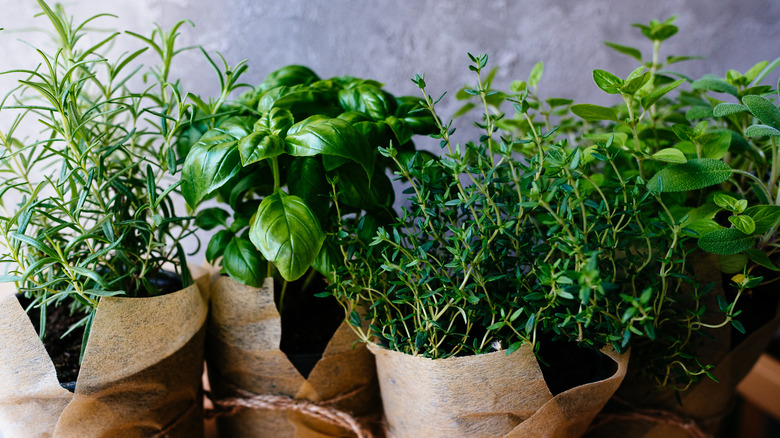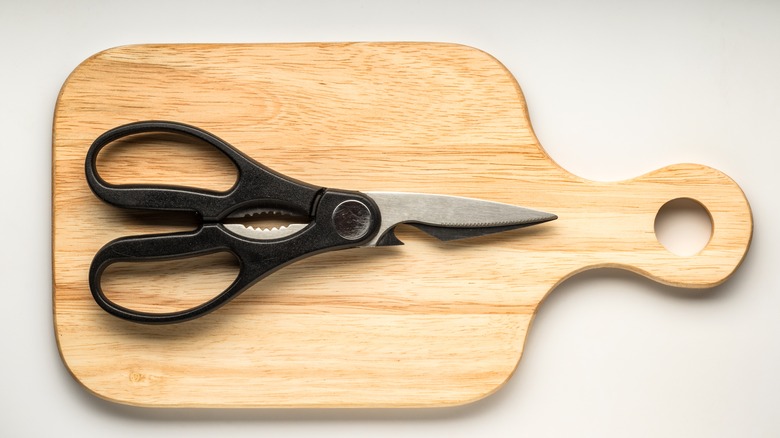How To Easily Cut Herbs Without Bruising Them
Sometimes, herbs are seen as an afterthought since they're usually not a hard requirement to make most recipes. But in their defense, they add elements of freshness, herbaceousness, and vibrancy that elevate a homecooked dish to something more restaurant-worthy. But whether you use herbs as a garnish or you mix them in, you must first start by chopping them.
There are several techniques for chopping herbs, and it depends on which ones you're working with. For example, chiffonading is an excellent method for basil leaves, while fresh dill requires the delicate leaves to be plucked first, then finely chopped into small pieces, per The Cookful.
Mishaps may occur when chopping such herbs, and it happens to even the best home cooks. As Epicurious mentions, one common error is chopping damp herbs because they tend to get mushy. In this case, just wash your herbs and then dry them thoroughly. Another one has to do with bruising the poor herbs. According to a paper published in Acta Horticulturae, bruising is when plant tissue changes its flavors, aesthetics, and textures because of an external force. This external force is strong enough to cause damage, which breaks the cell walls. In other words, bending or pressing herbs is enough to bruise them. But sometimes, it's actually beneficial to bruise herbs because of the oils that add flavor to vinaigrettes and salsas, per TheKitchn.
But if you don't want bruised herbs, no worries because we've got an easy technique for this.
Grab some kitchen shears
A knife certainly does the job when it comes to chopping herbs, but sometimes at the cost of bruising them. So to achieve small pieces of herbs that maintain their herby structure, just swap your knife with kitchen shears.
As Andrew Zimmern explains, all you have to do is snip the herbs with kitchen shears. In the case of chiffonading something like basil leaves, you can still achieve this with kitchen shears. Just stack them as you normally do, roll them up into a shape of a cigar, and aim for 1/8-inch snips.
Aside from kitchen shears, you could also use herb scissors, which come in several varieties. For the most part, they look like regular scissors, but with multiple blades. Herb scissors with five blades, for instance, are great for dill, chives, basil, and parsley because of their "delicate" characteristics, while single-blade herb scissors may yield a more finely chopped aesthetic, per Cuisine at Home.
So next time you're looking to cut some herbs without bruising them, ditch the knife in favor of kitchen shears or herb scissors.

